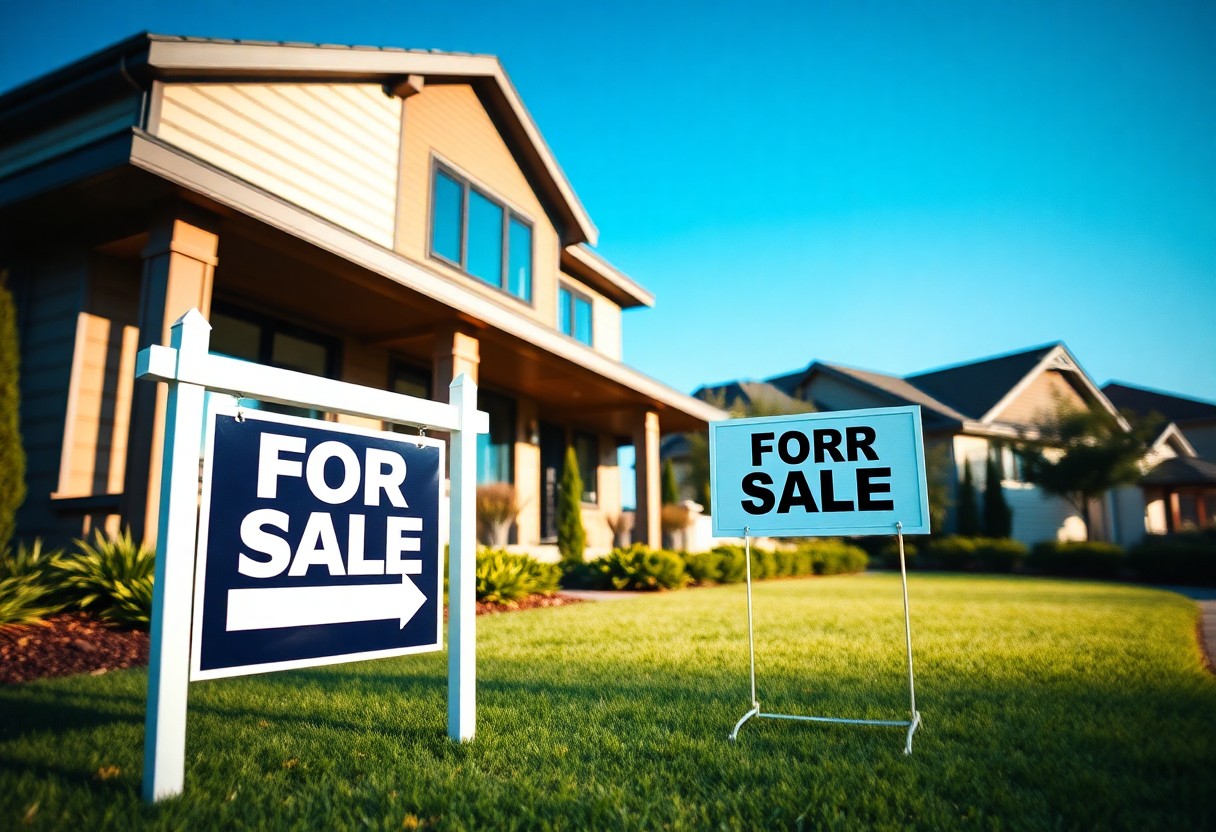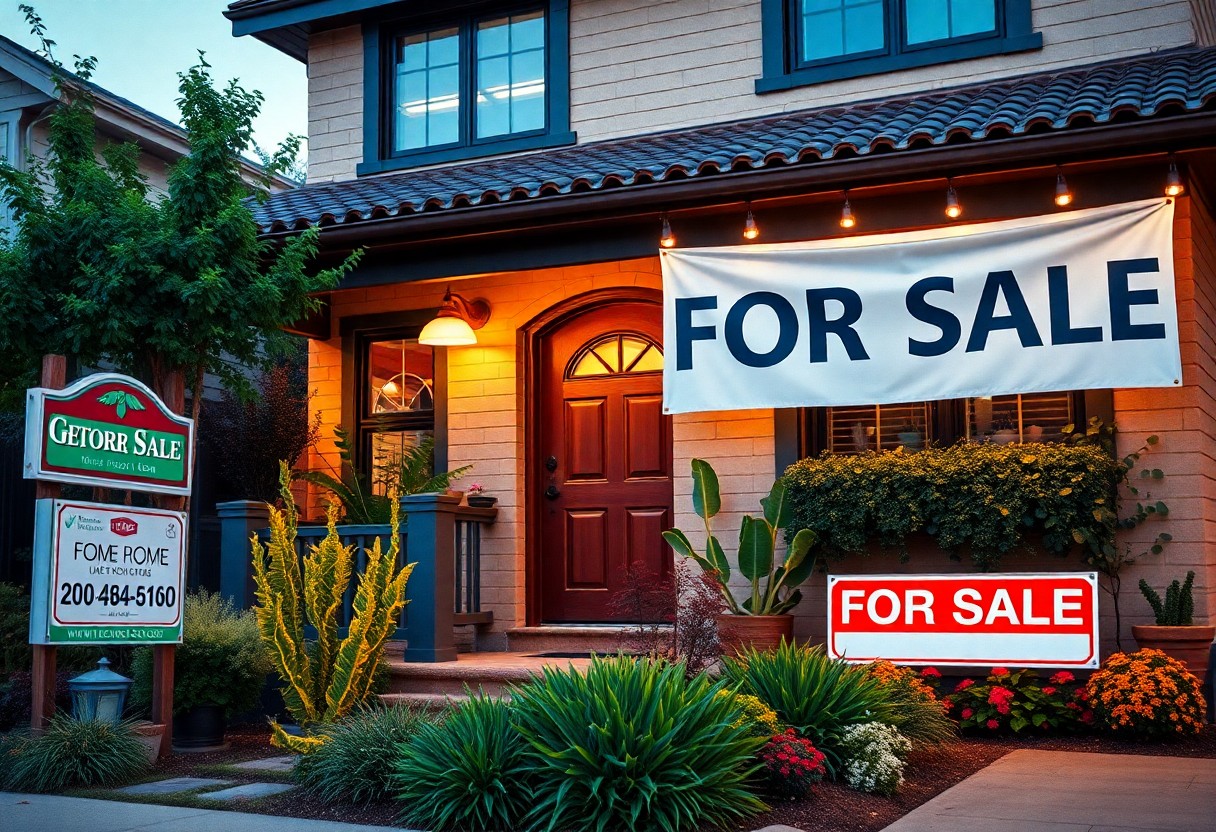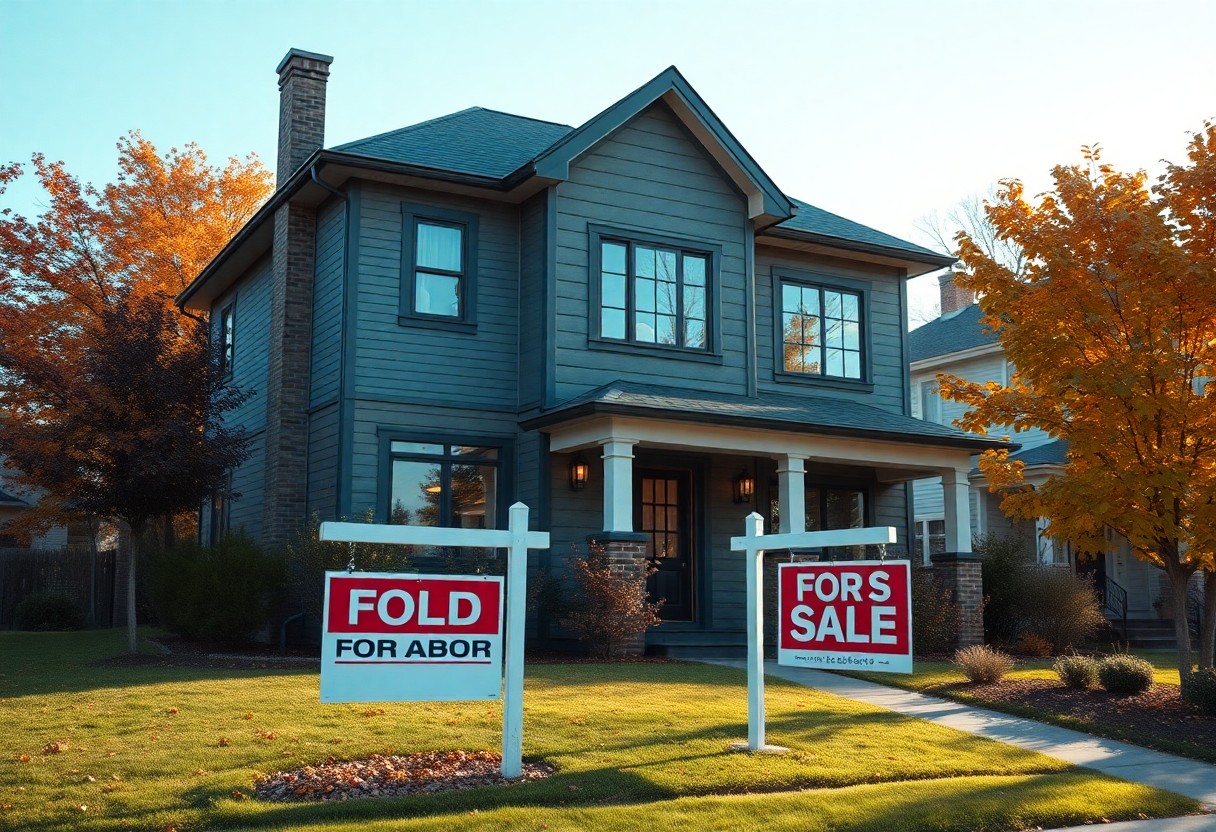Just when you think you’ve prepared everything for selling your home, setting the right price can make or break your sale. If priced too high, your home risks lingering on the market; priced too low, you might leave money on the table. Understanding the value of your property is crucial to achieving maximum profit. In this post, you’ll learn effective strategies to ensure you’re hitting the sweet spot when it comes to pricing. For more detailed insights, check out Full Value: Proven Methods to Price and Sell Your Home ….
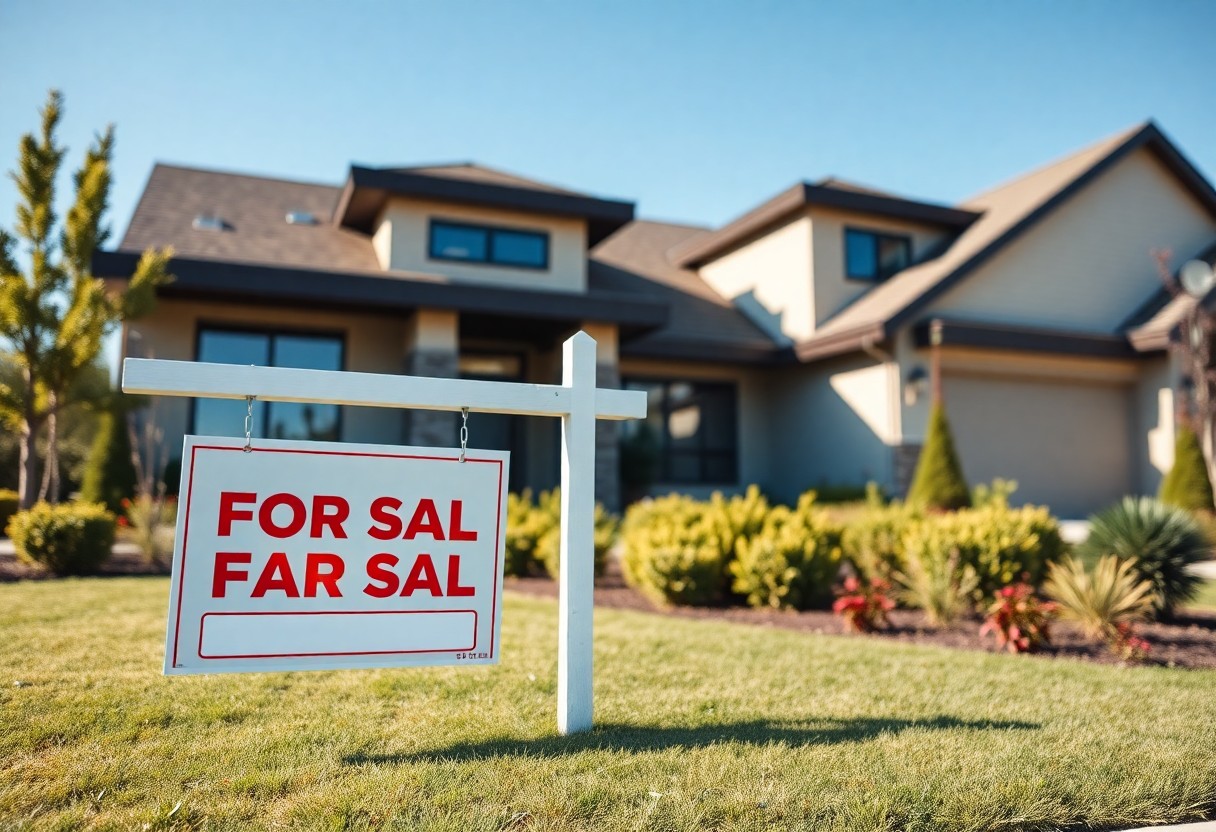
Key Takeaways:
- Conduct a thorough market analysis to gauge local property values and trends.
- Consider the unique features of your home and how they compare to similar properties in your area.
- Set a competitive price that attracts buyers without undervaluing your property.
- Consult a real estate agent for expert advice on pricing strategies and market conditions.
- Be flexible and open to adjusting your price based on feedback and market response.
- Highlight recent renovations or improvements that could increase the home’s perceived value.
- Use online tools and resources to stay informed about local real estate dynamics and pricing strategies.
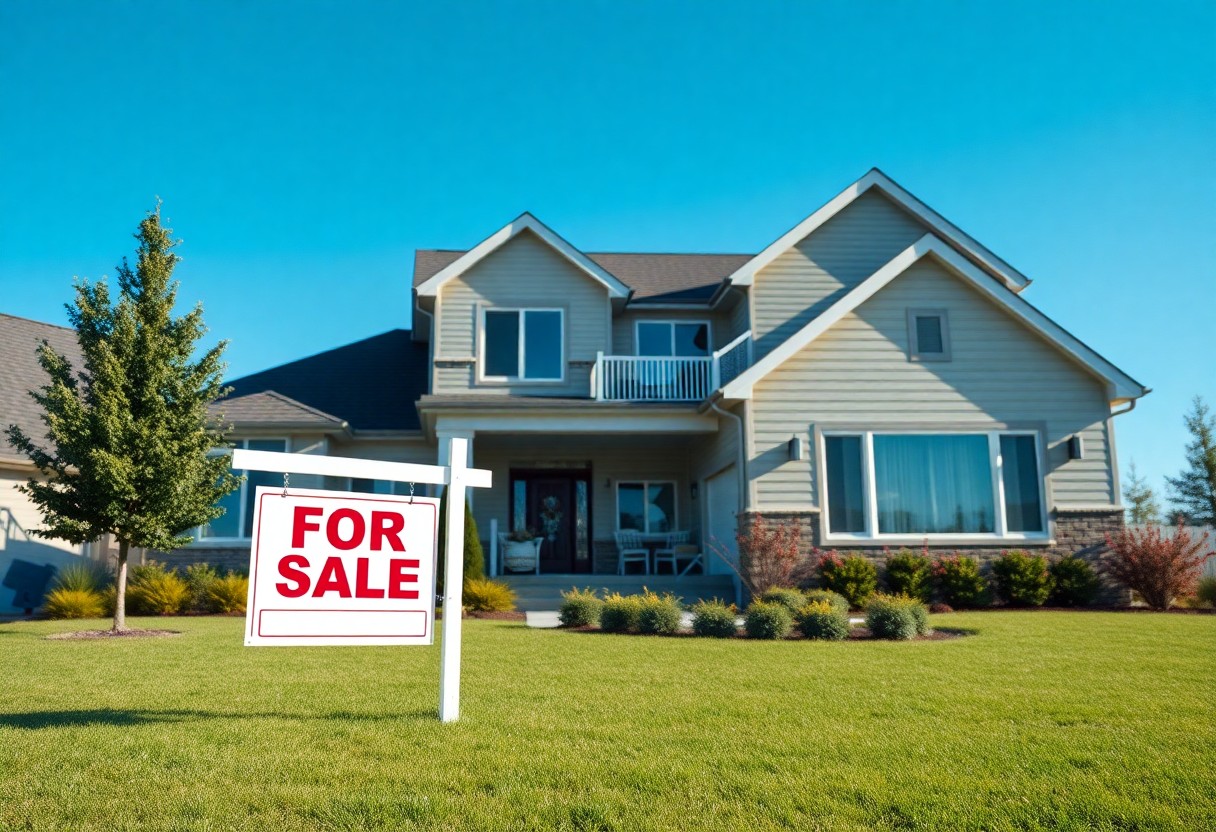
Understanding the Market
Your ability to price your home accurately hinges on a solid understanding of the real estate market. It’s vital to grasp how local trends, buyer behavior, and economic factors can influence your property’s value. By staying informed about these elements, you can set a price that appeals to buyers while maximizing your potential profit.
Analyzing Local Real Estate Trends
Now is the time to investigate the current local real estate trends. Evaluate recent sales in your area to understand pricing dynamics, the average days on the market, and buyer demand. This analysis will empower you to make intelligent decisions about your asking price and adjust based on neighborhood performance.
Knowing When to Sell
Sell timing can significantly impact your sale price. Factors like market conditions, seasonal trends, and personal circumstances play key roles in determining the best moment to list your home.
With an eye on market conditions, optimizing your sale timing can lead to a more lucrative outcome. Listed during a seller’s market—when demand outstrips supply—your home is more likely to sell quickly and at a higher price. Conversely, selling during a buyer’s market, when competition is stronger, could result in lower offers. Evaluate your personal circumstances, local demand, and seasonal fluctuations to select the best time to achieve the maximum return on your investment.
1. Research local market trends and similar home sales.
2. Get a professional home appraisal for accurate valuation.
3. Analyze comparable properties for pricing insights.
4. Consider your home’s unique features and upgrades.
5. Set a competitive price to attract potential buyers.
6. Monitor market response and adjust pricing if necessary.
Factors Influencing Home Pricing
The price you set for your home is affected by various factors. Some key elements include:
- Location
- Neighborhood dynamics
- Property features
- Market trends
- Condition of the home
Knowing these influences allows you to strategically set a price that attracts buyers while maximizing your profit. For more details on How to Set the Price to Sell Your Home, check out this guide.
Location and Neighborhood Dynamics
To evaluate your home’s worth, consider its location and the characteristics of the surrounding area. Factors such as proximity to schools, parks, and amenities can significantly impact buyer interest and home value.
Property Features and Condition
Any aspects of your home, including its features and general condition, play a vital role in determining its price. Features like modern appliances, energy efficiency, and unique architectural designs can enhance value, while neglect or outdated elements can detract from it.
Factors influencing your home’s price include the size, layout, and landscaping. Upgrades such as a newly renovated kitchen can positively impact the selling price, while maintenance issues like a leaky roof can present dangerous liabilities that may lower bids. Be honest about your home’s strengths and weaknesses to accurately gauge its market position.
How to Determine Your Home’s Value
After gathering important information about your property and the local market, you can start determining your home’s value. Understanding the various factors that influence pricing, such as location, property size, condition, and recent sales in your area, will enable you to set a competitive price that maximizes your profit while attracting potential buyers.
Conducting a Comparative Market Analysis (CMA)
Analysis is an effective way to gauge your home’s value by comparing it to similar properties that have recently sold or are currently on the market. This process involves:
| Factors to Consider | Details |
| Location | Evaluate neighborhood trends and proximity to amenities. |
| Size and Layout | Compare square footage and floor plans of similar homes. |
| Condition | Account for upgrades and maintenance needs. |
| Market Trends | Research current buyer demand and housing supply. |
Hiring a Professional Appraiser
Now that you have some insights, hiring a professional appraiser can provide an unbiased perspective on your home’s value. An appraiser will assess your property based on solid data, market trends, and local sales to give you a detailed report.
For instance, when you engage an appraiser, you gain a trusted expert who examines your home and compares it to similar properties. This can expose potential issues you might not have considered and help you avoid overpricing. It’s significant to understand that a well-conducted appraisal can lead to a more accurate price, ensuring you get the maximum profit and preventing the risks of a prolonged selling process. Ultimately, investing in a professional appraisal may save you time and improve your chances of a worthwhile sale.
Tips for Setting the Right Price
Now that you’re ready to price your home, consider these tips to set the right price for maximum profit:
- Conduct a thorough market analysis
- Evaluate comparable properties in your area
- Factor in your home’s unique features
- Be aware of current market trends
This thoughtful approach will help you establish an attractive price point that appeals to buyers.
Price Strategically to Attract Buyers
To effectively draw potential buyers, price your home slightly below comparable properties. This allows you to create a sense of urgency and encourages competitive offers, which can drive up the final selling price. Highlight unique features and be prepared to negotiate, as this strategy can yield better results in today’s competitive market.
Avoiding Common Pricing Mistakes
To maximize your profit, it’s vital to avoid common pricing mistakes that can hinder your selling process.
Pricing your home too high can result in prolonged market time and buyer disinterest. It’s crucial to stay informed about local market conditions and ensure your price is competitive. Also, don’t ignore the impact of emotional attachment; personal feelings can cloud your judgment. A realistic, objective analysis will help you avoid overpricing, ultimately leading to a smoother selling experience and more favorable financial outcomes.
Adjusting Your Price
To achieve the maximum profit when selling your home, you may need to adjust your price based on market conditions and feedback from potential buyers. It’s necessary to remain flexible and open to making changes, as this can significantly impact the speed of your sale and ultimately, your financial return. Research current market trends and compare your property with similar listings to ensure your pricing strategy aligns with buyer expectations.
Monitoring Feedback and Market Response
For effective price adjustments, you must actively monitor feedback and market response from showings and open houses. Engage with your real estate agent to gather insights on how potential buyers perceive your home, including their comments on pricing compared to similar homes. This information is invaluable in determining whether your price needs to be raised, lowered, or maintained.
Strategies for Price Reductions
Your approach to price reductions can significantly influence buyer interest and the final sale price. Setting a clear strategy is necessary to attract serious offers without undervaluing your property. Take advantage of time-sensitive approaches, such as lowering your price after a specific timeframe or creating urgency among buyers through promotional tactics.
Feedback from showings can guide your pricing strategy effectively. If you receive consistent comments indicating that buyers find your home overpriced, it might be time for a price reduction. One effective strategy is to consider a small initial reduction to gauge buyer response before making more significant changes. Creating a sense of urgency can motivate buyers, so timing is necessary. Be mindful of, a well-calibrated price not only attracts interest but also fosters competitive offers that can maximize your profit.
Summing up
So, as you prepare to sell your home, it’s necessary to set the right price to maximize your profit. Conduct thorough market research, consider the unique features of your property, and consult with real estate professionals to establish a competitive yet profitable listing. By staying informed about local market trends and adjusting your price as needed, you can attract more potential buyers and ultimately secure a successful sale. Empower yourself with knowledge, and take charge of your selling process for the best possible outcome.
FAQ
Q: How do I determine the market value of my home?
A: To find the market value of your home, consider getting a professional appraisal or conducting a comparative market analysis (CMA). A CMA involves looking at similar homes that have recently sold in your area to estimate a competitive price. Additionally, online real estate platforms can provide insights into recent sales and current listings, helping you gauge the local market trends.
Q: What factors can influence the price of my home?
A: Several factors can impact your home’s price, including its location, size, age, condition, and any unique features or upgrades. Nearby amenities such as schools, parks, and shopping areas can also sway potential buyers. External factors like market trends and economic conditions can further affect how much buyers are willing to pay.
Q: Should I invest in renovations before selling my home?
A: While minor renovations, like fresh paint or landscaping, can enhance your home’s appeal and possibly increase the price, not all renovations yield a good return on investment. It’s beneficial to focus on kitchen and bathroom updates, which tend to attract buyers. However, assess local market conditions and consult with a real estate professional for personalized advice on improvements.
Q: How do I set a competitive asking price?
A: To set a competitive asking price, analyze recent sales data for homes similar to yours in your area, taking notice of their sale prices and how long they were on the market. Incorporate the condition of your home and any upgrades you’ve made. It may also be beneficial to consult with a real estate agent, who can guide you on appropriate pricing strategies based on current trends.
Q: What should I avoid when pricing my home?
A: Avoid overpricing your home, as it can discourage potential buyers and increase the time it stays on the market. Additionally, steer clear of setting an emotional price based on personal attachments; instead, rely on factual data and market conditions. Lastly, don’t ignore the input of experienced real estate professionals who can provide objective advice and perspective.
Q: How does timing affect the selling price of my home?
A: Timing can significantly influence your home sale price due to seasonal trends in the real estate market. Typically, spring and summer are popular times for home buying, which can lead to higher prices. Additionally, local economic conditions and trends can affect demand, so staying informed about the market and listing at the right time is important for maximizing profits.
Q: Can I negotiate the price after receiving offers?
A: Yes, you can negotiate the price after receiving offers, and this is quite common in real estate transactions. Keep in mind that some buyers may present lower offers, but you have the option to counter their proposals. It’s best to consider all offers carefully and consult with your real estate agent to ensure you are negotiating effectively and aiming for the best possible price for your home.

